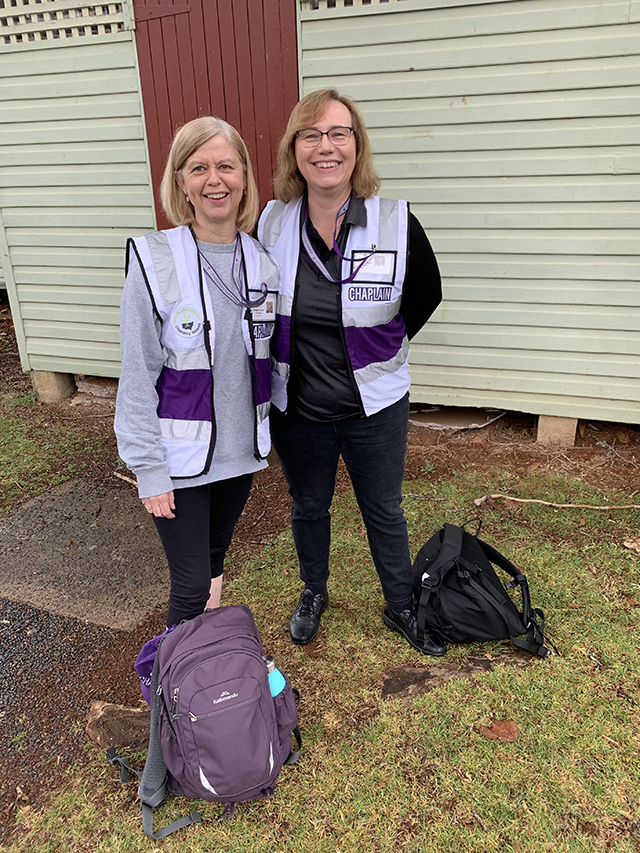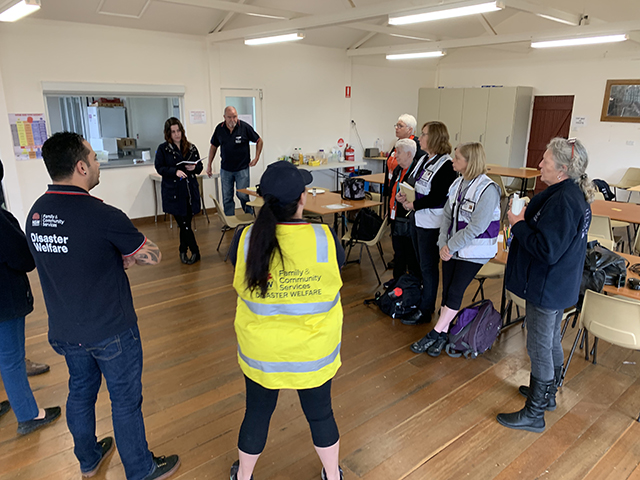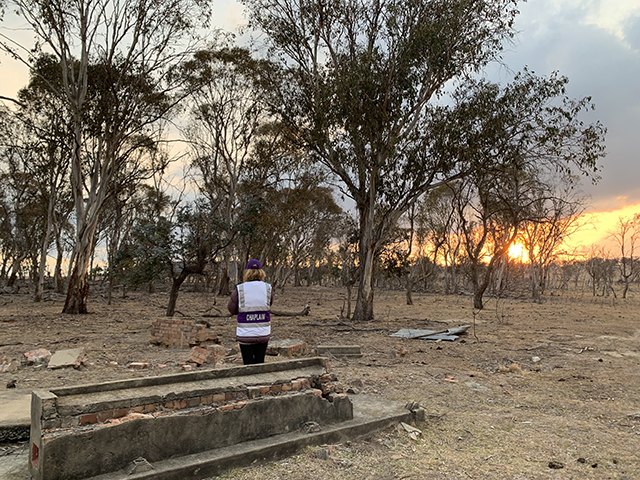On Saturday 7 September, wild winds in the north of NSW, combined with long-term drought conditions made for extraordinary difficult conditions for firefighters as they sought to contain blazes which started in the area between Dorrigo and South East Queensland. Whole communities were threatened and impacted by fires, destroying houses, farm buildings, livestock, fencing and what little ground-feed was left from the drought.
These fires, including the Drake and Bees Nest Fires (which alone has covered 97,000 hectares), are still burning. For many people in this sparsely-populated area this experience has been overwhelming. Many live in isolation, on bush blocks or in small homes or caravans, with few home comforts; others to the south, are farmers who have been struggling to feed stock through the drought to maintain their herds. In the past three weeks many of these farmers have lost much to the fires: grassland, fences (which makes keeping stock off roads or national parks a high priority) or have been through the heart wrenching ordeal of having to destroyed fire-injured stock.

From the very start of the emergency the Uniting Church has overseen the deployment of Disaster Recovery Chaplains to engage with people in this emergency and beyond. The NSW Disaster Recovery Chaplaincy Network (DRCN) is a ministry which is coordinated by this Synod of the Uniting Church. The DRCN has been operational for 10 years and consists of 320 volunteer chaplains from 20 different denominational and faith groups. The Uniting Church is a Community Partner with the NSW Government to provide pastoral care, through the DRCN, to disaster-affected people and communities in times such as these.
Since the 7 September, 26 different Chaplains have given hundreds of hours of support in four evacuation centres (Tenterfield, Dorrigo, Yamba and Bermagui) as well as information and support points and public meetings at places including Drake, Ebor, Tyringham, Dundurrabin and Ward’s Mistake (yes that is a place). Uniting Church ministers and chaplains played a major part in a very strongly ecumenical response by the DRCN. In the northern fires, chaplains were drawn from the east from Lismore and Casino area (Rev Peter Overton in particular as well as Uniting Chaplain Jennie Clarke) to Drake, the south from Armidale (Revs Will Pearson and Jo Smalbil), from Coffs Harbour and Armidale for Dorrigo, as well as flown in from Sydney (including Rev. Suzanne Stanton from St Johns). Revs Graeme and Leigh Gardiner travelled from the Blue Mountains to minister from the Dorrigo evacuation centre. Jeannie Pienaar attended at Yamba and Craig Boulton at Bermaguii. While the costs of deployment are covered by the NSW government, the logistics of this ministry are extraordinary, and supported by logistics volunteers and duty officers and permission from congregations to allow ministers to go is vitally important.

Chaplains have been used by NSW Disaster Welfare Services to accompany Family and Community Services alumni as they assessed people’s losses. In many localities, traditional ‘outreach’ or door knocking has been impossible, so chaplains have been asked to attend district recovery meetings to meet people as they gather for news and support.
DRCN Coordinator, Rev. Dr Stephen Robinson shared the feedback of many: “The chaplains are so highly valued. Ten years ago, when this ministry started people would ask ‘why would we need a Chaplain?’. Now it’s ‘When can we get a Chaplain?’ They are seen as the first line welfare resource and constantly called on for their wisdom and grace. I have had Centre Managers say to me “I don’t know what your chaplains do, but we love them!”

Chaplains bring a listening ear, a quiet pastoral presence and practical pastoral experience which is invaluable at times such as this. They work in partnership with Disaster Welfare Services, FaCS, Red Cross and the Salvation Army and Local Land Services.
Our chaplains have also supported people directly. $20,000 from the Moderator’s Disaster Relief Fund has already being released to directly support fire affected people with essential needs identified by the chaplains.
To find out more about the DRCN visit the Synod Website to donate to its work, click here.
Ministry agents interested in training for the DRCN can contact the coordinator, Stephen Robinson on stephenr@nat.uca.org.au












